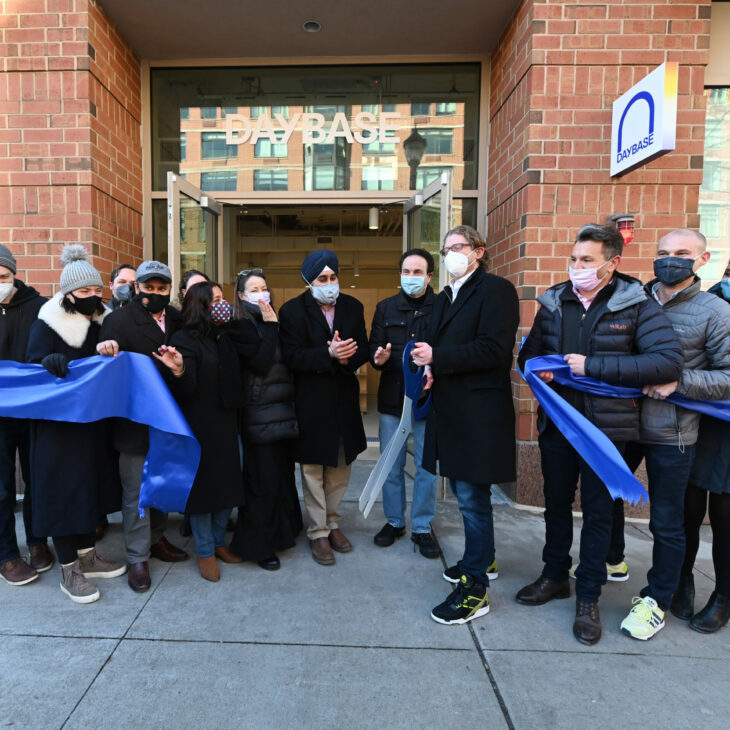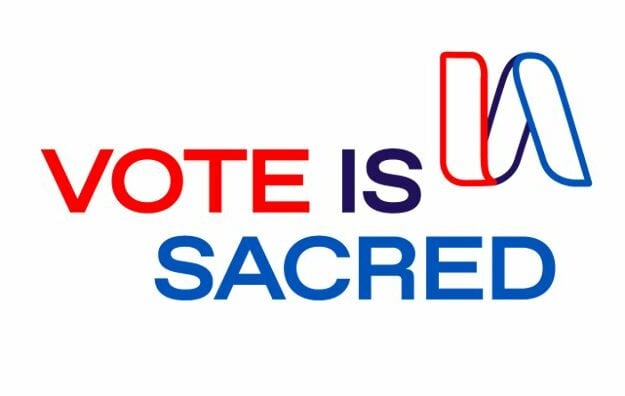A New Jersey Mayor Connects Civic Work with Sikh Call for Justice
October 27, 2022

When Ravinder Singh Bhalla decided to run for mayor in Hoboken, New Jersey, in 2017, people questioned him: Who’s going to vote for you?
He was one of four Sikhs in a largely white community, and his turban and long beard, which he wore as a part of his Sikh faith, made him susceptible to frequent religious discrimination. Just days before the elections, racist flyers were put up around town saying, “Don’t let terrorists take over this town.”
“It made me think whether there’s a conflict between my faith and my ability to succeed in the public sector,” Bhalla said. “People said my faith was going to be a liability.”
But Bhalla not only went on to become the Hoboken’s 39th mayor, he won the election with a majority vote, becoming the first Sikh American to hold elected office in New Jersey. In 2021, he won his second term unopposed.
In an interview with Interfaith America Magazine, Bhalla shares what it was like growing up as a Sikh American in New Jersey, how his faith inspires him to do his work, and why he thinks voting is a sacred act.
This interview was lightly edited and condensed for clarity.
Silma Suba: What made you pivot from a career in law to politics?
Ravinder Singh Bhalla: When I was young, my main interest was in business, not politics. In 1984 the atrocities and the human rights violations against the Sikh community in India had a big impact on me. I was only about 11 years old at that time. Our community and our faith were literally under assault by a tyrannical government in India. And that was a big wake-up call for the Sikh community. I was at that kind of a formative age in my life, and my interest really pivoted away from business, a little bit more toward social justice and human rights.
In college, I developed more of an interest in human rights law and government. I’d go to Capitol Hill to talk to legislators, and that made me understand that if you want to make sure that your faith is respected, and your human rights are respected, then you have no choice but to be involved in politics. Because your ability to practice your faith might be impacted by the government that you’re in. I saw that in India in a very extreme situation, and so ensuring fundamental freedoms and liberties and rights became a lot more important to me growing up.
SS: What was it like growing up as a Sikh in New Jersey?
RSB: It was not a diverse community. And unfortunately, I was one or two of the only people who would fall into a minority group. So, I was unfortunately subjected to school bullying, the standard type of bullying that a lot of Asians and South Asians at that age certainly go through.
My mother always told me to make sure that there’s some accountability involved if somebody is inappropriate with you, especially from a moral standpoint. So, I think my parents raised me in a way where those bullying experiences gave me a lot more empathy for other minorities, and other people, whether they be any race or religion or gender orientation. Any minority, anyone who looks to anyone who’s different for any reason, gave me a lot more of a sensitivity towards assisting and advocating for people who have no voice.
SS: What has your interfaith journey looked like working with diverse communities?
RSB: After 9/11, there was this backlash against people who were either Muslim, Arab American, South Asian American, or perceived to be from a Muslim community, and sometimes there were misperceptions about the Sikh community. All the biased crimes and hate crimes against Muslims and other communities, including the Sikh community, are documented.
At that point in my career, I was only about two or three years out of law school. But I was working at a law firm that gave me the bandwidth to really give time to these incidents. It was just me and a few other Sikh lawyers, and we would get calls from across the country every single day. A truck driver was arrested because of his physical appearance somewhere in Alabama, and we’re trying to figure out how to help this person. Or someone’s at an airport, and the airports were terrible, where they were forcing Sikhs to remove their turbans as a condition to fly on a plane. So, I would try to work with the federal government to provide some legal guidance counseling. It was coming at you at a very rapid pace. We were trying to help out different people from different communities.
At Hoboken, there is an interfaith clergy, and we have a great relationship. We host a ceremony for the victims of 9/11, a lot of whom were from Hoboken and we lost a lot of members. We bring people of clergy from different faith backgrounds to come together for that day.
There are hate crimes that are perpetrated in other parts of the country against the Jewish community. We have a nice robust Jewish community and a synagogue. So, when something happens that’s antisemitic in nature, like in Pittsburgh or Texas, it kind of jolts the Jewish American residents in our community. You should never be afraid to practice your faith here. A house of worship should be a safe space, where you should practice your faith and practice it fearlessly. With that in mind, I make sure that our police department and my police chief, and our whole command staff are very vigilant and very sensitive to the needs of the Jewish community.
So, when these incidents happen, we already have regular security patrols for the synagogue where we provide heightened security. And when these things happen, we will up the security and we have discussions with law enforcement about how to strengthen the security of some of these houses of worship and be a partner to make sure people can practice their faith freely.
Share
Related Articles
American Civic Life
American Civic Life
We Commemorate, We Commit: Out of Catastrophe, a Conversation on Connection and Repair
Higher Education
Our Gurus taught us to live our lives selflessly. They instructed us to serve humanity and speak out against injustices such as racism and xenophobia. Voting is an expression of these values that must be used as a tool to help conquer these inequities we are confronted within society.
SS: How does your faith drive you to do the work that you do?
RSB: I think I view government and what I do as public service from the lens of a Sikh. I think that lens is one of not just a religion or faith, but also of a social reform movement to look where there is gross inequality, gender inequality, inequality amongst religions. Sikhism to some is as much a religion as it is a movement to reform some of these social norms, to create more equality.
I always tell my daughter that the founders of our religion were extolling the virtues of women from long before. In our Indian culture, often people pray that they have a boy when somebody’s pregnant, but our founders were actually praying that they’d have a baby girl. Things like that made me view Sikhism as being almost like a radical egalitarian religion that’s as inclusive as possible.
We don’t believe that we have a monopoly on the truth, we believe that everybody has their own perspective. And you should, as the founder of our faith said, you should have to have no fear, but also strike no fear in anybody. But there’s also the idea of sacrifice. Sikhs have given a lot of blood in terms of upholding not just their faith, but other faiths. There’s a certain concept of oneness in Sikhism, that we’re all children of the same creator. That there’s nothing more important than living free and defending the weak and the poor. That’s a form of worship.
SS: What’s a message you’d like people to take away on the importance of religious diversity?
RSB: Especially now that I think the ground is shifting beneath us, we’re at an inflection point in the U.S., where we have a real opportunity to push forward this concept where we have a country that’s inclusive, where you can practice your faith fearlessly. We do have challenges in terms of certain segments of the population, who are either just ignorant willfully or not. So, I think it’s important for us to be vigilant. And I think it’s also important for us, as faith communities, to work together.
I think there’s an obligation to help any human being, especially anyone who’s suffering or in need of assistance.
I’m sure that almost every faith says the exact same thing. So, maybe, a deeper introspection into your faith might also expand opportunities for people to have the perspective that their faith teaches them inclusion, love for all, and equality for all.
SS: Do you think it’s important for everyone to go out and vote? Is there any particular Sikh wisdom that inspires you to vote”?
RSB: Sikhi is rooted in social revolution that was based on the concept of “oneness”, meaning everyone is equally divine. Our Gurus taught us to reject the inequities in society and strive to correct them. In order to resist injustice, our Gurus taught us to live our lives selflessly. They instructed us to serve humanity and speak out against injustices such as racism and xenophobia. Voting is an expression of these values that must be used as a tool to help conquer these inequities we are confronted within society. Our Tenth Guru Gobind Singh said, “O Almighty, give me the strength to never shun a righteous act.” Voting for those who seek equality and justice is the moral imperative of a Sikh.
Mayor Ravinder Singh Bhalla is a 2022-23 Vote is Sacred Thought Leader.




